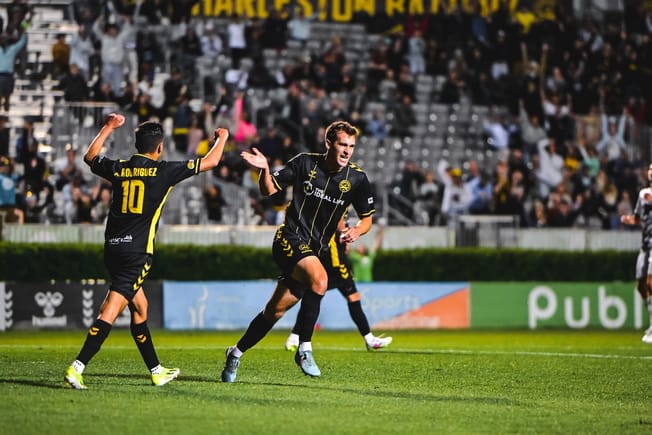"I made the decision that I am going to go to Miami."
From the moment Messi, maybe the greatest soccer player of all time, announced his decision to join Inter Miami in Major League Soccer, an opportunity appeared. For a league with mostly middling players that tends to get overlooked by soccer fans in the United States who default to the Premier League and Liga MX, Messi would bring something exceedingly rare to MLS: attention.
And he’s done exactly that.
I mean, Inter Miami became the most searched sports team in the entire world in 2023. You can’t do much better on the interest front. Suddenly, soccer fans, casual sports fans, and even non-sports fans have been paying attention to at least one part of MLS.
But what happens when the sole individual in MLS who demands attention… leaves? At 36, Messi won’t be around forever. His contract is currently set to expire in two seasons at the end of 2025. Already collecting money from Saudi Arabia as a tourism ambassador, there’s little chance that the Argentinian legend chooses to help grow MLS and the sport in the U.S. after his playing career is over.
No, Messi will make his exit in the not-too-distant future. When that happens, the interest that he brought to the league will fade. Most casual fans will stop paying attention, restoring MLS to the same hyper-localized, die-hard-fan-driven product it’s always been.
Unless, that is, MLS decides to change something to give Messi fans a reason to stay.
In a salary cap league designed to promote parity over anything else, MLS has had problems convincing casual fans that their product is worth watching over the myriad of other soccer leagues that are the same number of clicks away. Make no mistake, parity is a useful tool for the league. It’s hard to find fault with MLS for taking steps to ensure that they don’t end up like some of Europe’s most well-known leagues that are decided before the season even starts.
To avoid leaving anyone behind at the starting line, though, MLS has created roster mechanisms that make it impossible for their teams to keep up with most globally relevant teams on the field. Things like the cap, designated player spots, and, well, pretty much the entire 9,000 word MLS Roster Rules and Regulations document serve the purpose of competitive balance. Letting 62% of the league into playoffs – as MLS did this past year – is another tool to limit the number of teams left behind as the season progresses.
But parity has come at the expense of quality.
With 20% of Messi’s contract already in the rear-view mirror, MLS had a chance to make structural changes that would allow teams to add more talent and capture more interest outside of the Messi Blip. They had that chance at a board of governors meeting last week, where the league’s new sporting initiatives for the 2024 season were voted on — and they passed on that chance.






